In our latest episode of Accredian Success Stories, we feature Debaritra Chatterjee, a part of the Accredian’s GCD 2020 batch.
In conversation with Accredian, Debaritra, shares his career transition journey, how he cracked the Data Engineer interview at Exponentia.ai, and what his day looks like. Watch it here:
Q1. Tell us about your current role and background
Hi, I’m Debaritra Chatterjee. I’m currently working with Exponentia.ai, as a Senior Data Engineer. I’m a BTech 2015 graduate. After that, I joined ETL services as a Senior Analyst, where I worked with Excel, SQL, and sort of Tableau. Then I changed quite a few jobs. And in my last role, I was a Reporting Analyst. My role basically involved setting up reports in the form of Tableau dashboards and more.
Q2. Why did you switch to a Data Engineer role?
To be honest, I had an offer from PepsiCo, and that was actually in line with what I was doing in my last role. But I wanted to have something different in my resume. And as for data, this was the right time to make the change. So that’s why in order to pursue something different, I moved towards a Data Engineer role.
Q3. Why challenges you faced while transitioning to a Data Engineer role?
So the challenges that I faced during my transition were experience-related. I was having experience as a reporting analyst. But, the companies wanted someone who had a developer background, or who knew the pros and cons of development and all those things.
So it was a bit difficult for me to gain all that experience. As I almost had to go through a lot of parameters, settings, and everything related to software development lifecycle, how wholesaling works, what are the different agile methodologies, what are the different tools that we have, and what we can do. So these are the challenges, the new things that came up. The interviewers often ask how do we do this? how do we do that, and it was a bit difficult initially.
Q4. What was the selection process at Exponentia.ai?
At my current company, there were three rounds of interviews. So, in the first round, there were some technical questions like, what tools are you working with? Then there will be some tricky questions. For example, what is the difference between SQL join and the alteryx shell? What are join groups? How can we extract all the files from a particular folder?
This round is followed by another technical round, which is taken by the client-side. So the clients ask questions based on particular tools and scenario-based questions like how do you proceed with this problem? And what are the tools that you’re going to choose to solve this problem?
After the second round, there is an HR round. After which a simple basic English language test is conducted. 10 to 20 questions on logical reasoning and mathematics are asked, similar to the CAT exam.
Q5. What interview questions were you asked?
So, I was asked questions like how do you create a workflow? What are the things that you look into? If I want my output in a certain format, how do you get that? And how do you use a reporting factor?
Q6. Why did you join Accredian? How did it help you?
I joined Accredian because I wanted to move to Data Science. So, I had a very good interaction with Suchit regarding what was my thought process and more. And I realised that I wasn’t in line with whatever I had thought of. So that’s the reason I started Accredian’s Data Science program.
And it has helped me a lot to understand statistics, the different nuances, and terminologies of statistics, and how to deal with data. Because since I wanted to be a Data Engineer, I had to be clear with the data, how to make it more insightful, and how to clean it.
Q7. Walk us through your day as a Data Engineer.
So one of my daily tasks includes development, support, monitoring, giving access to different resources, and working with my client when they come up with certain challenges like they want the data to be formatted this way or they want some calculations to happen.
Then I also work on monitoring already inbuilt workflows to understand why exactly a particular workflow fails. So, I look through the data, try to understand it by working with the technicians, get all these changes done, and also focus on understanding what our client wants. So this is how my day as a Data Engineer looks like.
Q8. What advice would you give to Data Science beginners?
So my advice to Data Science beginners would be that it’s not about using a particular tool or a methodology. But rather understanding the data, like why is my data like this, what can I do with it? If I take a particular variable, will I be able to extract more information from it? How can I use data to help businesses gain more insight or profit? So basically, having a clear understanding of data is the most important part.
We hope you found this interview interesting. If you have any queries related to Data Science, fill this form, and we will get back to you.

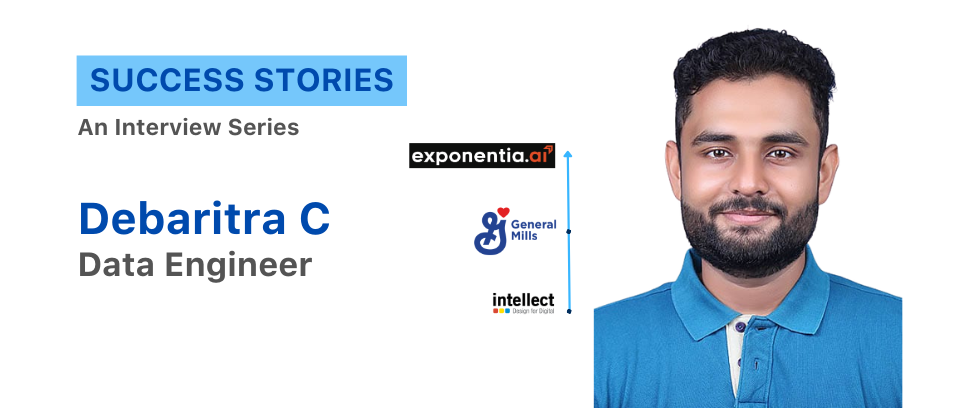
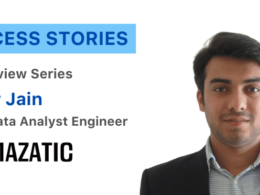
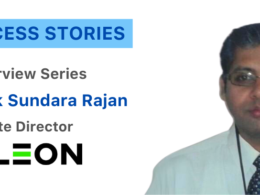
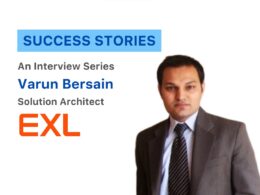
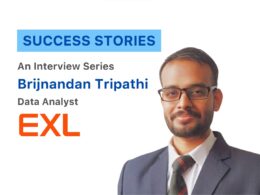

1 comment